Most folks have probably never heard of U.S. v Daniels at this point, but that could soon change if the Supreme Court grants the Justice Department’s request to take up the case. The question posed to the Court is one that will have a long-lasting impact on tens of millions of American citizens, potentially including some guy named Hunter Biden; have “unlawful” users of drugs given up their right to keep and bear arms, even in states where their drug of choice has been legalized or decriminalized to one degree or another.
Biden’s attorneys have already cited the Fifth Circuit’s decision in Daniels as evidence that his own charges of purchasing a firearm while regularly using crack cocaine should be tossed out, after the appellate court ruled that Patrick Darnell Daniels’ Second Amendment rights were violated when he was charged and convicted of possessing guns while he regularly consumed marijuana. The Fifth Circuit concluded that while there are plenty of longstanding laws dating back to the time of the Founding that prohibit using a gun while intoxicated, the modern prohibition barring drug users from possessing a firearm entirely fails the text, history, and tradition test laid out by the Supreme Court in Bruen.
In their request for certiorari, the DOJ maintains the “Second Amendment allows Congress to disarm persons who are not law-abiding, responsible citizens, and Section 922(g)(3) falls comfortably within that principle.” Rather than take up the case immediately, however, Solicitor General Elizabeth Prelogar asked the Court to hold off on granting or refusing to hear the case until after it issues its decision in the Rahimi case, and then “dispose of the petition as appropriate.”
The Biden administration is hoping that the Court will uphold the federal prohibition on gun possession for those subject to a domestic violence restraining order, and do so in a way that opens the door to adopting the DOJ’s position that any violation of the law, no matter how minor, places gun owners beyond the Second Amendment’s protections. In the case of Patrick Daniels, Prelogar argues that while there may not be any historical statutes that bar illicit drug users from possessing firearms altogether, there are plenty of laws that prohibit other “dangerous” groups like the mentally ill from exercising their Second Amendment rights.
The analogy between drug use and alcohol use does not support the court of appeals’ contrary decision. Drinking was legal at the Founding and thus did not pose the same types of dangers as the use of illegal drugs does today. States, in any event, have long done more than ban gun possession while drunk. In the 19th century, many States enacted statutes allowing “habitual drunkards” to be committed to asylums or placed under guardians in the same manner as “‘lunatics.’” The Fifth Circuit recognized that, because “‘lunatics’” “could be wholly deprived of their liberty and property, the government could necessarily take away their firearms,” but the same is true of “drunkards.” In addition, at least one State in the mid-19th century specifically disarmed “common drunkards,” and many States and territories today prohibit firearm possession by alcoholics.
Nor does the analogy between drug use and mental illness support the court of appeals’ decision. It has long been understood that a person with a mental illness does not necessarily exhibit symptoms all the time. Blackstone thus defined a “lunatic” as “one that hath lucid intervals; sometimes enjoying his senses, and sometimes not.” And Coke defined a “[l]unatique” as a person “that hath sometime his understanding, and sometime not.” This Court has nonetheless approved “longstanding prohibitions on the possession of firearms by * * * the mentally ill”; it has never suggested that the validity of such laws fluctuates with the remission and relapse of a person’s symptoms. Just as Congress may disarm persons with mental illnesses even during their lucid intervals, it may disarm drug users even during their sober intervals.
The problem with DOJ’s argument is that there’s a specific process to removing the Second Amendment rights from “the mentally ill”, and it’s not nearly as sweeping as the current prohibition on “unlawful” users of drugs. There must be an adjudication of mental illness, for one thing. According to federal statute, that adjudication can happen in one of two ways. First, a determination by a court, board, commission, or other lawful authority that a person, as a result of marked subnormal intelligence, or mental illness, incompetency, condition, or disease is a danger to himself or to others or lacks the mental capacity to contract or manage his own affairs. Secondly, a finding of insanity by a court in a criminal case; and persons found incompetent to stand trial or found not guilty by reason of lack of mental responsibility.
In other words, simply being diagnosed with depression or another mental illness does not disqualify someone from owning a firearm (nor should it). Not only does the Justice Department suggest that any violation of the law, even something as minor as a speeding ticket, negates someone’s Second Amendment rights, it’s also trying to grossly expand the current federal law on those adjudicated as mentally ill to include anyone diagnosed with a mental illness.
There are 38 states that have legalized medical marijuana, and 23 of those have also legalized or decriminalized the recreational use of marijuana. Marijuana possession and use is legal in Washington, D.C., at least at the local level, yet the DOJ maintains that every consumer of cannabis in those states and the District of Columbia has forfeited their right to keep and bear arms as a result. The vast majority of those states place no restrictions on gun owners using cannabis, and in fact in New Jersey the Attorney General even maintains that police officers can toke up to their heart’s content (or their lungs start burning) so long as they’re off-duty.
It’s federal law where the issue arises, and the DOJ is right when it says that the Fifth Circuit’s decision “has significant practical consequences,” though not in the way the government attorneys argue. The Solicitor General’s brief claims that “Section 922(g)(3) is one of the most frequently applied of Section 922(g)’s disqualifications,” resulting in “more than 217,000 denials of firearms transactions” since the inception of the NICS program in 1998. That may be an indication of just how many unlawful users of drugs there are in the United States, but it hardly proves the value of the statute or the dangerousness of those individuals.
How many of the hundreds of thousands of would-be gun buyers who’ve been denied their ability to purchase a firearm at retail because of their drug use are medical marijuana patients or otherwise imbibing lawfully under the laws of their state? The DOJ brief doesn’t say, but we know that there are likely millions of Americans who risk federal prosecution if they don’t choose between their health and their personal safety. Some of them may choose to give up medical marijuana in order to maintain their Second Amendment rights, others will forgo owning a gun so they can better treat the side effects of chemotherapy or other live-saving medications, while some unknown number will risk felony charges and continue to possess guns by using drugs that the federal government has declared off-limits.
It’s an untenable situation, and while Congress could simplify things by removing cannabis from the list of Schedule 1 drugs or approve the Gun Rights and Marijuana Act, which would allow folks in states that have legalized marijuana to lawfully possess guns and cannabis at the same time, the odds of a legislative fix appear to be pretty long at the moment. The Supreme Court is the best chance of restoring some sanity to the situation by ruling Section 922(g)(3) unconstitutional, while still upholding those laws that bar possession of a firearm while someone is under the influence of any intoxicant, legal or otherwise.
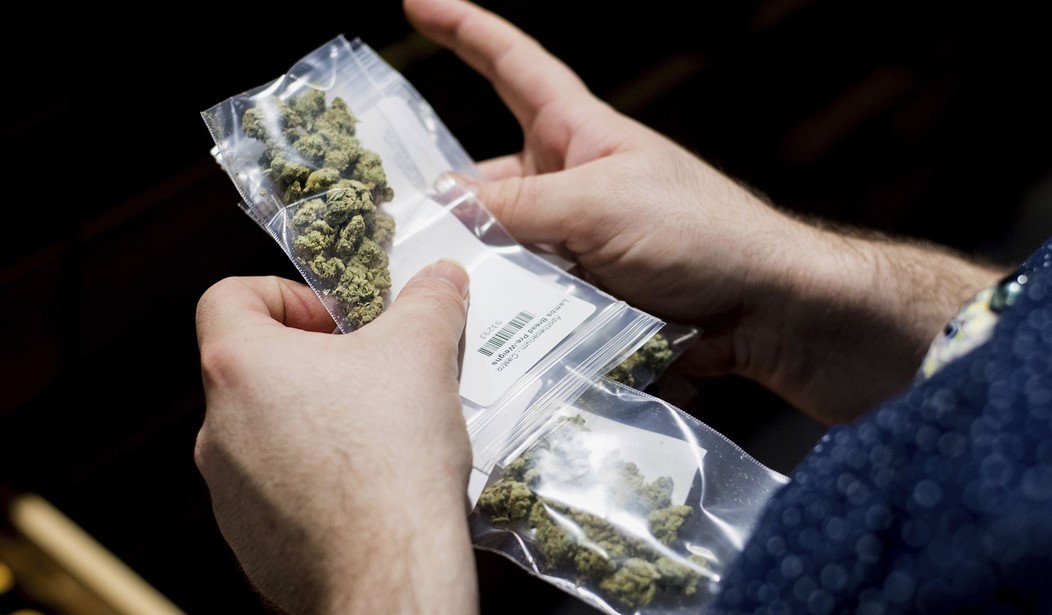


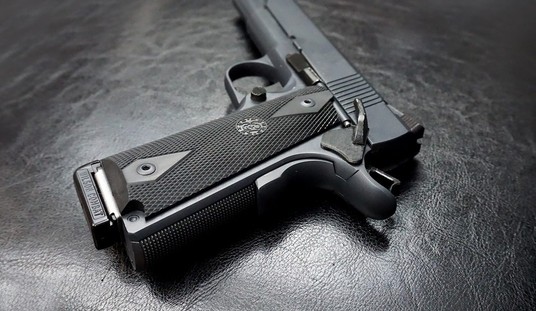
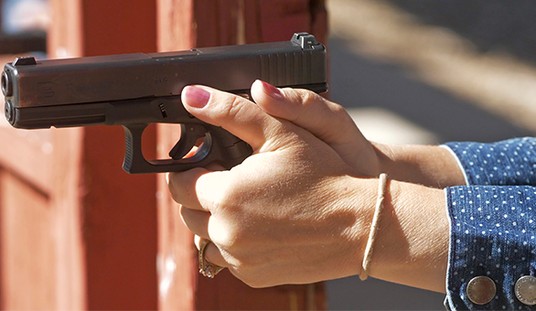


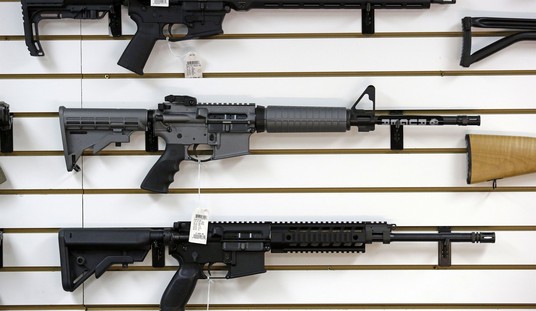
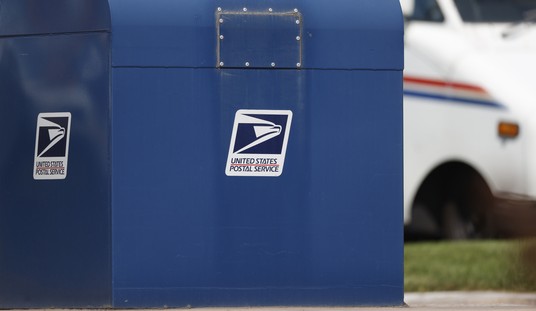
Join the conversation as a VIP Member